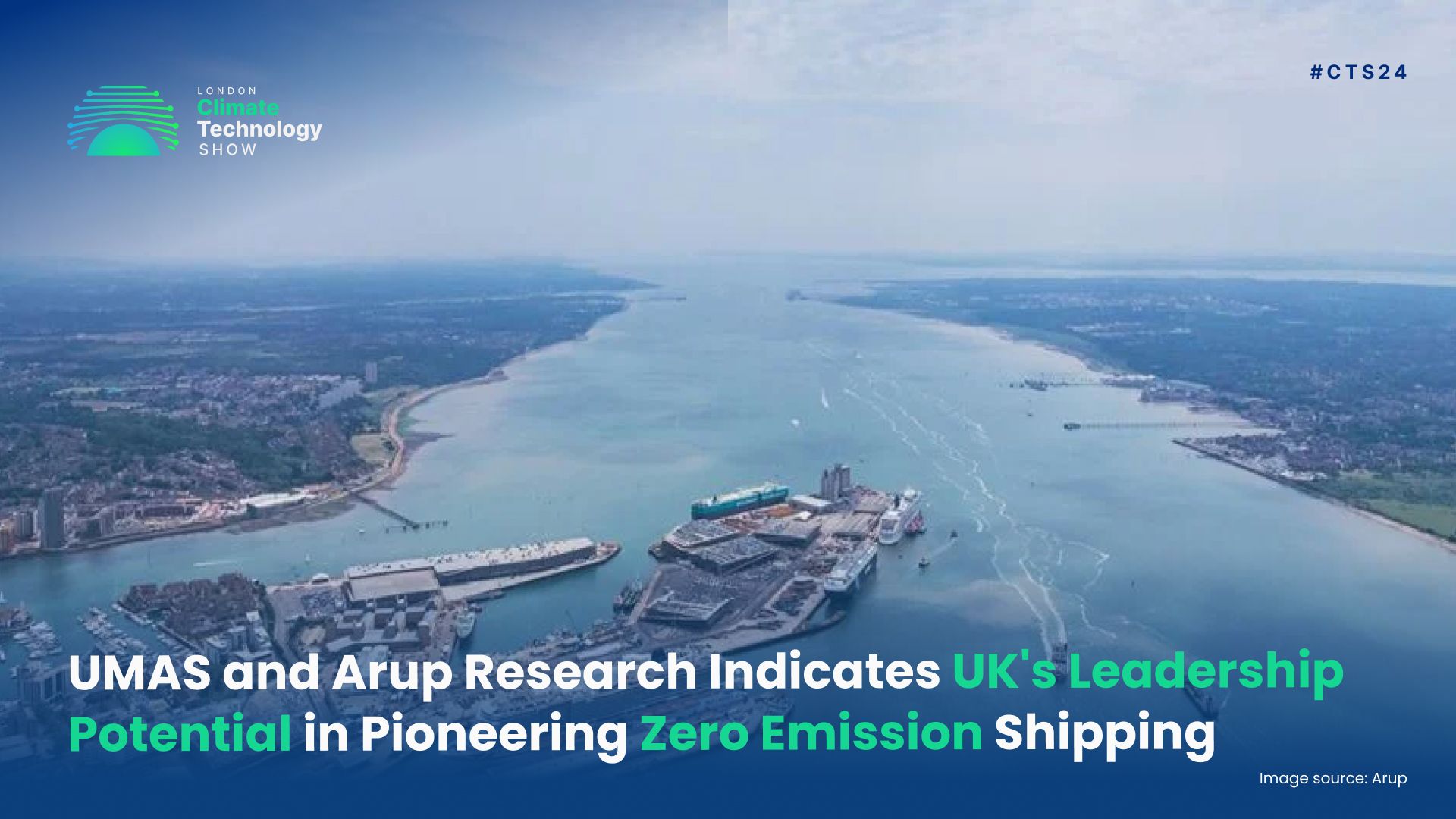10 May 2024: According to a report, the United Kingdom can become an early mover in the global shipping industry’s transition to zero-emission fuels. The report titled “Opportunities for the UK to kick-start shipping’s transition to zero emission fuel” has been published by UMAS, an independent maritime and energy decarbonisation consultancy, and Arup, a global sustainable development and engineering consultancy. It outlines actionable ways the UK can become an early mover in maritime decarbonisation.
The pressing need to achieve decarbonization targets in the shipping industry is emphasised by the International Maritime Organization’s (IMO) revised Greenhouse Gas (GHG) strategy. This strategy establishes ambitious objectives, aiming for zero or near-zero GHG emission energy sources to make up 5% to 10% of the energy used in international shipping by 2030.
“As the maritime sector shifts to net zero, this research shows the UK’s opportunity to lead global green fuel value chain development. Arup and UMAS have teamed up to tackle technical, commercial, and regulatory hurdles and pinpoint actionable solutions. Our findings pave the way for a transformative shift in global zero-emission shipping. It is an exciting time for the sector, with the UK able to take a leading role in demonstrating how and where investment is required,” Sally Prickett, Director at Arup, commented in the company’s press release.
The research examines the potential effects and necessary infrastructure for decarbonizing six large ferries on regular routes from ports in Northeast England, as well as seven container vessels operating from ports in the Solent on the South Coast. The findings indicate that the potential carbon savings could position shipping in these regions to meet the most ambitious international decarbonisation goals.
Utilising UMAS’s innovative FUSE route identification tool and Arup’s extensive knowledge in the production, design, and delivery of zero-emission fuels, the report illustrates the UK’s potential to become a frontrunner in this sector. It also emphasises the importance of developing essential last-mile infrastructure to solidify the UK's future role in the fuels market. The report delves into key elements affecting the scalable supply and demand of zero-emission fuels in the UK and establishes a validated framework to support global sustainability initiatives.
Understanding current shipping energy demand is said to be instrumental in identifying opportunities to concentrate decarbonisation efforts and mitigate investment risks. UMAS has provided key insights into the energy makeup of fleets operating in dynamic port areas such as the Northeast (including Teesside, the Humber, and the Tyne River) and the Solent strait (Southampton-Portsmouth).
The research underscores the UK's significant potential to lead the global maritime industry towards a sustainable future. By leveraging its strategic position, robust maritime infrastructure, and commitment to innovation, the UK can catalyse the transition to zero emission fuels in shipping. This pivotal role not only aligns with the country's environmental objectives but also positions it as a trailblazer in the fight against climate change.

